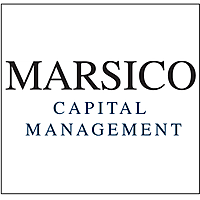Today's tech landscape is dramatically different to 1999-2001

Marsico Capital Global Investment insights
We have received questions from our investors regarding the current equity market environment vs. the technology bubble investors experienced from 1999-2001. We think the landscape is quite different today. To that end, we wanted to share some of our perspectives and potential opportunities to capitalize on the current dislocations in the Global equity markets.
-
There has been some froth in the venture capital community, particularly in late-stage financing, but it has not spilled over into the public markets and inflated valuations. Likewise there has been far less venture funding the last few years vs. the 1999-2000 period, despite a great deal more revenue and profit being generated today.
-
During the bubble, there were IT Consulting and Services companies valued at 25x revenue vs. 1-2x revenue today. Microsoft, Cisco, Oracle, Dell, Qualcomm and Sun Microsystems all had P/E's above 50x.
-
During the bubble, no startup company had free cash flow and many had no revenue. Yet private funding reached US$80 billion in 2000 vs. about US$25-30 billion today. Business models today are real and real revenue is being generated.
-
During the bubble, tech stocks were over a 32% contribution to the S&P vs. 21% today.
-
In 1999, 371 companies went public with a median time to IPO of 4 years. In 2014, the median time to IPO was 11 years and only 53 companies went public, similar to the pace of the 1980's.
-
In 1999, ecommerce revenue was just US$12 billion. Today it is over US$300 billion.
-
In 1999-2000, the technology venture funding was early stage, today the bulk of the funding dollars are late stage to more mature companies with proven business models.
-
In 2001 and 2008, start-ups and next-generation technology companies had challenges because enterprise buyers were concerned about their solvency...so they stopped buying and went to IBM, Cisco etc.That is NOT happening today.It is less capital intensive to start and run a company in 2016 - thanks to cloud computing - and the scale of mobile has enabled broader distribution of products and services, and therefore faster time to profitability.This is perhaps the biggest difference.
Our investment outlook continues to anticipate slow global GDP growth with low levels of inflation. Despite certain challenges to global growth, we do not foresee an impending global recession. We believe improving economic circumstances in the developed world will lift profitability in industries not directly competing with the developing world and not heavily dependent upon labor input.
Because we believe global growth will remain “lower for longer,” we find the best earnings growth opportunities exist in companies that are innovative and poised to show revenue growth contribution from market share gains, rather than dependence on the macroeconomic environment. We think that for the next few years, the market will reward market share-driven secular organic growth through stock price outperformance. In particular, companies making use of technology to develop innovative new ways of conducting business or create revolutionary new products or services should deliver strong performance. We continue to avoid investments in commodities and macro-dependent areas.
Sincerely,
The Marsico Capital Management, LLC Investment Team
Please keep in mind that our views on investments discussed herein are subject to change at any time and the holdings represented here do not represent all of the securities purchased, sold or recommended by MCM. References to specific securities mentioned herein are not to be construed as a recommendation to buy or sell those securities, should not be assumed to be or have been profitable investments, and are not guaranteed to be in portfolios today.
1 topic

Marsico Capital Management, LLC (“MCM”) is a Denver, Colorado-based, SEC-registered, investment management firm, Founded by Thomas F. Marsico in 1997. MCM are concentrated growth equity investors where investment ideas most often come from an...
Expertise
No areas of expertise

Marsico Capital Management, LLC (“MCM”) is a Denver, Colorado-based, SEC-registered, investment management firm, Founded by Thomas F. Marsico in 1997. MCM are concentrated growth equity investors where investment ideas most often come from an...
Expertise
No areas of expertise
